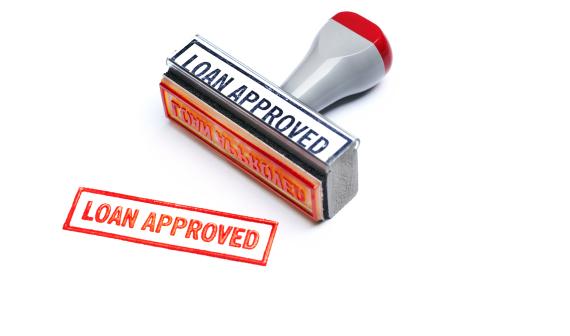Even though we all know how important it is to maintain a good credit history, many of us still struggle with poor credit. If you've been turned down for a loan because of your credit history, you should know that it's possible to repair your credit. This article will help you get started.
If you are struggling to make the payments on your current mortgage, consider looking into the option of loan modification. In many cases a lender may be able to lower the interest rate that you had initially agreed on. This process used to be just for homes that were in danger of foreclosure but many lenders are now extending this service to many others.
All documentation that you send to reporting agencies should be sent by certified mail. Through this method you will have documentation of your sending and the agencies will be giving a return receipt of the mailing. In this way you are guaranteeing that from your end to their end, the required steps have been met.
If you have extremely bad credit, consider going to a credit counselor. Even if you are on a tight budget, this might be a very good investment. A credit counselor will explain to you how to improve your credit score or how to pay off your debt in the most efficient way possible.
As you get to retirement age, ensure your personal finance is secure by using the tools available through the social security retirement planner. They will provide you with all of the information you need to make proper decisions that can leave you set on the right track to financial success.

An important tip http://www.feedbite.com/rss_pages/AdrianQuinn6.xml to consider when working to repair your credit is to be sure to challenge anything on your credit report that might not be accurate or fully accurate. The company responsible for the information given has a certain amount of time to respond to your claim after it is submitted. The bad mark will eventually be eliminated if the company fails to respond to your claim.
When in the process of repairing your credit, you will have to speak with creditors or collection agencies. Make sure that you speak to them in a courteous and polite tone. Avoid aggression or it could backfire for you. Threats can also lead to legal action on their part, so just be polite.
If you must use a credit card, protect your credit and manage your finances better by paying it off in full each month. If you pay it off each month, you will generally not earn interest on your purchases, so you pay only what the item actually cost at the store. Also, carrying over balances may raise your APR, meaning you pay even more in interest over time.
An important tip to consider when working to repair your credit is the fact that correct information can never be removed from your credit report, be it good or bad. This is important to know because many companies will claim that they can remove negative marks from your account; however, they can not honestly claim this.
If you want to repair your credit on your own, your first step will be to get your credit report. Once you have that in hand, highlight all the negative and incorrect items you want to have removed. You will then want to write a letter to each of the three credit bureaus disputing these items and requesting they be https://www.bankfirstnational.com/personal-loans.htm removed.

Consider credit counseling. There are many good non-profit credit-counseling agencies available to help people get out of debt and repair their credit. If you don't think that you can get of debt by yourself, go speak to a counselor and get the advice that you need to take back control of your finances.
Do not believe those advertisements you see and hear promising to erase bad loans, bankruptcies, judgments, and liens from your credit history forever. The Federal Trade Commission warns you that giving money to those who offer these types of credit score repair services will result in the loss of money because they are scams. It is a fact that there are no quick fixes to repair your credit. You can repair your credit legitimately, but it requires time, effort, and sticking with a debt repayment plan.
When trying to repair your credit, keep in mind that you will be committing a federal crime if you supply false data on a credit or loan application. It is also illegal to use false pretenses to get an Employer Identification Number issued by the Internal Revenue Service. You will be acting criminally if you misrepresent your Social Security number. If you apply for credit through the internet, mail, or telephone and supply false information, you can be charged and prosecuted for committing wire or mail fraud.
A important tip for anyone embarking on credit repair is to be skeptical about companies insisting on large, up-front fees prior to doing any work whatsoever on your credit file. In this way, you will have a better ability to distinguish those firms which may truly be able to offer assistance from those simply out to make a quick profit from your distress.
Learn how to recognize credit improvement scams out there. These scams will cost you up-front and in the long run as the criminal activity that is committed falls back onto you. At the same time, you still have debts to repay, which could increase in the process of learning you have been scammed and doing something about it.
If you want to improve your credit, start a plan to pay off the debt you owe. When you have existing debt, it negatively impacts your credit score and is a major burden. Determine your budget and focus on reducing your debt as quickly as possible. Having no current debt will help to raise your credit score.
If you're struggling with a poor credit history and want to repair your credit, it's best to get rid of all of your credit cards but one. There's really no need to have more than one card, and the more you have, the harder it is to keep track of all those monthly payments.
If you've examined your credit report and can clearly see errors, contact the reporting bureau immediately. Although each report may contain different information, the reporting agencies will contact each other with any updates to information that may be incorrect. The reporting agency should also notify you if they've fixed the error, and send you an updated copy of your credit report without charge.
So, aren't you glad you took a few minutes to learn or remind yourself about credit repair? Remember it is never too late to apply the suggestions provided to protect or repair your credit.

